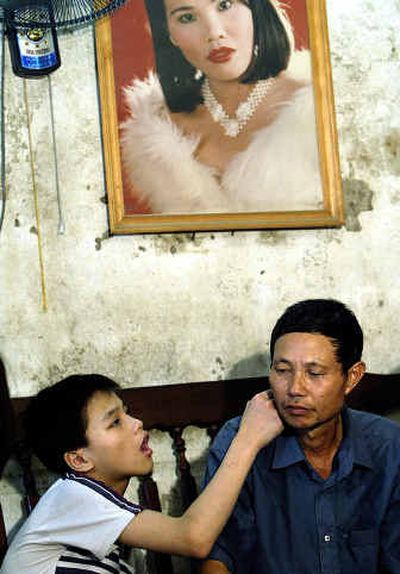Agent Orange lawsuit dismissed

NEW YORK – A federal judge Thursday dismissed a lawsuit filed on behalf of some 4 million Vietnamese claiming that U.S. chemical companies committed war crimes by making Agent Orange for use during the Vietnam War.
U.S. District Judge Jack B. Weinstein disagreed that the allegedly toxic defoliant and similar U.S. herbicides should be considered poisons banned under international rules of war, even though they may have had comparable effects on people and land.
The Brooklyn judge also found that the plaintiffs could not prove that Agent Orange had caused their illnesses, largely because of a lack of large-scale research.
Plaintiffs’ lawyers said an appeal was planned.
The lawsuit was the first attempt by Vietnamese plaintiffs to seek compensation for the effects of Agent Orange, which is laden with the highly toxic chemical dioxin and has been linked to cancer, diabetes and birth defects among Vietnamese soldiers, civilians and American veterans.
U.S. aircraft sprayed more than 21 million gallons of the chemical from 1962 to 1971 in attempts to destroy crops and remove foliage used as cover by communist forces.
Lawyers for Monsanto, Dow Chemical and more than a dozen other companies had said they should not be punished for following what they believed to be the legal orders of the nation’s commander in chief.
They also argued that international law generally exempts corporations, as opposed to individuals, from liability for alleged war crimes.
“We’ve said all along that any issues regarding wartime activities should be resolved by the U.S. and Vietnamese governments,” said Dow Chemical spokesman Scot Wheeler. “We believe that defoliants saved lives by protecting allied forces from enemy ambush and did not create adverse health effects.”
The Department of Justice had supported the chemical companies in court, saying a ruling against the firms could cripple the president’s power to direct the military.
A plaintiffs’ lawyer, William Goodman, said the judge made “a clear error” in deciding Agent Orange was not a poison and said an appeal was planned.
“The use of this chemical in Vietnam was a scandal from the very beginning, and the failure of this court to redress these wrongs is a continuation of that scandal,” Goodman said.
Some 10,000 U.S. war veterans receive medical disability benefits related to Agent Orange.
The Vietnamese government has said the United States has a moral responsibility for damage to its citizens and environment but has never sought compensation for victims.